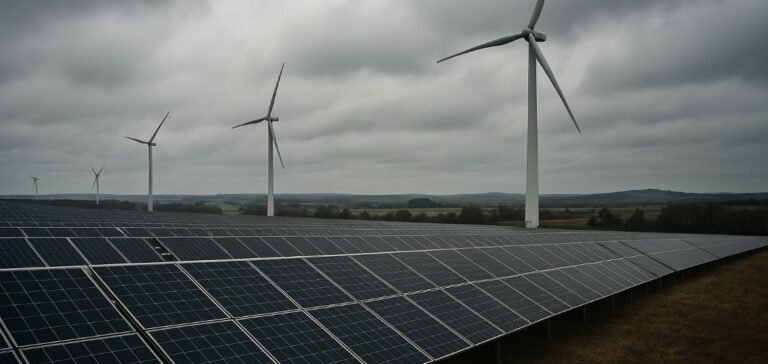Electricity markets across Europe and beyond are witnessing a marked increase in negative prices, a direct consequence of the rapid growth in renewable generation capacity. This trend, which has intensified since 2022, stems from the challenge of large-scale electricity storage and the constant need to balance supply and demand in real time. Peaks in solar or wind production, typically occurring during periods of low consumption, exert downward pressure on wholesale prices, occasionally driving them below zero.
A phenomenon driven by the renewable energy mix
According to the International Energy Agency (IEA), negative prices accounted for 25% of production hours in 2024 in southern Australia and 15% in southern California. In Europe, Finland, Sweden, the Netherlands and Germany recorded between 5% and 8% of hours with negative prices. In France, high-voltage network operator RTE reported 359 hours of negative pricing last year, twice as many as in 2023.
These price conditions primarily arise when renewable output, whose peaks often do not align with demand cycles, temporarily floods the grid. For instance, photovoltaic generation peaks at midday, while demand is highest in the morning and evening. Thermal power plants, particularly gas-fired ones, sometimes opt to maintain production temporarily, which may be less costly than a shutdown, thereby compounding short-term imbalances.
Economic impact and systemic responses
Losses associated with negative prices have generally remained moderate. The IEA noted that in 2024, these prices averaged between -1 and -30 USD per megawatt-hour (MWh), reaching -25 USD in Victoria (Australia) and -12 USD in Germany. In France, values stayed close to zero, with the overall cost to the public estimated at approximately EUR80mn between January and June 2024, according to the French Energy Regulatory Commission (CRE).
To mitigate these effects, several measures are under consideration. Greater electrification of uses such as mobility and heating would enable more effective absorption of surplus generation. In addition, expanding storage capacity, particularly through batteries, is deemed essential. Pricing reforms are also underway, including changes to billing schedules to better reflect energy availability.
Export momentum strengthened by overproduction
In 2024, France exported EUR5bn worth of electricity, mainly to Italy, Germany, Belgium and the United Kingdom. This outcome, enabled by the competitiveness of its nuclear, hydropower and renewable assets, allowed surplus production to be monetised which would otherwise have added strain to the domestic grid. RTE emphasised that this electricity was not sold off cheaply, contrary to claims of energy dumping, but exported under competitive conditions.






















